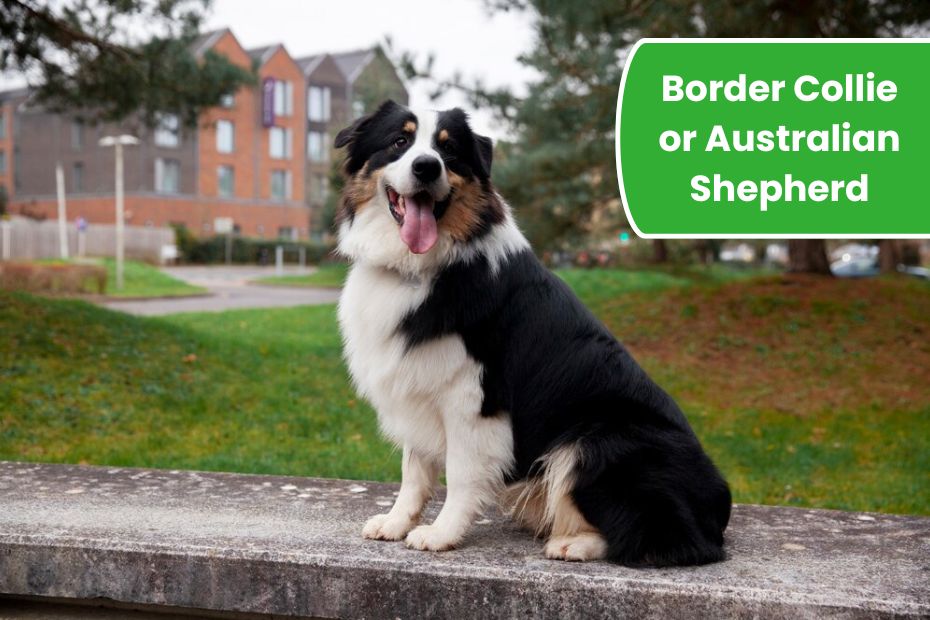Often commonly referred to as mutts, mixed breed dogs have become very popular and appeal to pet owners all around. Unlike purebreds, these dogs are a wonderful combination of several breeds that provide a distinctive set of features that distinguishes them. Recent patterns on websites like X show an increasing inclination for mixed breeds because of their uniqueness, cost, and flexibility.
With 60% of U.S. shelter dogs reported as mutts, shelters report greater adoption rates for mixed breeds according to the ASPCA. Their appeal resides in their variety, tenacity, and suitability for many lifestyles.
Examining their health, personality, and social influence, this paper analyzes twelve convincing reasons mixed breed dogs are so common. Current insights support every argument, guaranteeing a new viewpoint on why dog enthusiasts in 2025 choose these furry friends first option.
Unique Appearance
The distinct look of mixed breed dogs is among the most intriguing factors influencing their popularity. Those looking for uniqueness will find a one-of- a-kind look from no two mixed breeds, which differ greatly. These canines are living works of art from dramatic coat patterns to unusual color combinations. A Labradoodle could, for example, have warm eyes of a Labrador and curly fur of a Poodle.
This originality also relates to size and build, thereby enabling possible owners to choose a dog that exactly meets their tastes. Mixed breeds provide a surprising variety unlike purebreds, who sometimes follow rigorous breed requirements. This visual variety not only distinguishes them but also starts discussions and makes owners of dogs proud of their single beauty.
Healthier Genetics
A phenomena called hybrid vigor, mixed breed dogs often profit from better genes. Combining DNA from several breeds helps these dogs avoid inherited disorders that afflict purebreds, including heart problems in Cavaliers or hip dysplasia in German Shepherds.
Studies like one from the University of California reveal mixed breeds had a reduced incidence of genetic problems and 20% less vet visits for congenital concerns. Longer lifespans—often 12-15 years instead of 10-12 for certain purebreds—translate from this health benefit.
X owners often tell tales of their mutts’ tenacity and point up lower medical costs. Although not free from health issues, the varied gene pool lowers risk, so mixed breeds are a sensible option for anyone looking for a strong friend. Their appeal stems mostly from their hereditary robustness, which promises less heartaches and veterinarian costs.
Vibrant Personalities
Pet owners find great appeal in mixed breed dogs’ vivid personalities. These dogs inherit a combination of temperaments that produces active and interesting personalities. Combining a fun Beagle with a dedicated Collie, for instance, may produce an enthusiastic and loyal dog. Their variety makes them fit for many homes, from peaceful retirees to busy families.
Posts on X highlight the strange habits of mutts, like a Husky-Pug mix that loves to slumber yet howls melodically. Mixed breeds provide a wonderful unpredictability that keeps owners amused unlike purebreds raised for certain features. Their appeal stems from their surprising behavior—that of collecting toys or snuggling during storms or other unexpected habits. This personality kaleidoscope guarantees that every mixed breed provides a different spark, hence they are cherished friends that naturally appeal to hearts with their varied character.
Cost-Effective Choice
Often a reasonably priced option, mixed breed dogs appeal to pet owners on a tight budget. Mixed breeds are usually found for $100-$300 through shelters or rescues, according ASPCA statistics, unlike purebreds, which may cost $1,000-$3,000 from breeders.
Long-term care is also quite affordable as their better genes usually translate into reduced vet costs. Shelters also usually cover first vaccines and neutering, therefore lowering additional costs. Mixed breeds are more easily available to a larger audience including young couples and first-time owners because to their cost benefit.
Choosing a mixed breed not only saves money but also helps shelter projects, so fostering a win-all situation. Mixed breeds remain very popular among many different groups mostly because of their economical usefulness.
Shelter Support
Choosing a mixed breed dog speaks to environmentally minded pet owners and directly benefits animal shelters and rescue groups. According to Humane Society estimates, mixed breeds make up the bulk of the nearly 70% of U.S. shelter dogs; shelters are sometimes packed. Selecting a mutt releases resources and space, therefore allowing shelters to save more animals.
Many shelters also offer post-adoption assistance, including training materials, thereby improving the ownership experience. Campaigns advocating “adopt, don’t shop” show how in line this act of adoption is with expanding society trends toward ethical pet ownership. This is a convincing argument for their great appeal as owners help to lower euthanasia rates and promote a compassionate society by bringing a mixed breed into their houses.
Adaptability to Lifestyles
Selecting a mixed breed dog appeals to owners who care about the surroundings as it fits with eco-friendly principles. Adopting from shelters helps to lower the need for commercial breeding, which sometimes requires resource-intensive operations like large-scale kennels and transportation.
Puppy mills, which produce many purebreds, according to the Humane Society, require energy and trash, therefore aggravating environmental damage. Adopting a mixed breed reduces this imprint, on the other hand.
Furthermore, the better genes of mixed breeds mean fewer veterinarian visits, therefore lessening the environmental effect of medical supplies. To further decrease trash, owners also reuse objects from shelters such toys and containers. Younger generations who value green living will find mixed breeds appealing as this sustainable method fits their dedication to preserve the earth.
Eco-Friendly Choice
Choosing a mixed breed dog aligns with eco-friendly values, appealing to environmentally conscious owners. Adopting from shelters reduces the demand for commercial breeding, which often involves resource-intensive practices like large-scale kennels and transportation.
The Humane Society notes that puppy mills, which supply many purebreds, contribute to environmental degradation through waste and energy use. In contrast, adopting a mixed breed minimizes this footprint.
Additionally, mixed breeds’ healthier genetics mean fewer vet visits, reducing the environmental impact of medical supplies. Owners also repurpose items like crates and toys from shelters, further cutting waste. This sustainable approach resonates with younger generations prioritizing green living, making mixed breeds a popular choice for those who want their pet ownership to reflect their commitment to protecting the planet.
Endless Variety
The endless variety of mixed breed dogs is a key factor in their popularity. With countless breed combinations, these dogs offer a spectrum of sizes, colors, and traits, ensuring there’s a mutt for every preference. Whether it’s a fluffy Golden Retriever-Poodle mix or a sleek Greyhound-Terrier blend, the possibilities are vast.
This variety allows owners to choose a dog that matches their aesthetic and functional needs, unlike purebreds with predictable traits. Shelters provide a treasure trove of options, making the adoption process exciting and personalized.
This diversity also fosters inclusivity, as mixed breeds appeal to a broad audience, from those seeking hypoallergenic coats to others wanting a robust playmate. This boundless variety keeps mixed breeds in high demand.
Strong Community Bonds
Mixed breed dogs foster strong community bonds, bringing people together through shared experiences. Adoption events and shelter volunteer programs create networks of mutt enthusiasts who connect over their love for these unique dogs.
Unlike purebred clubs, which can be exclusive, mixed breed communities are open and inclusive, welcoming all. Local dog parks often see mixed breed owners forming friendships as their dogs play, with 65% of park-goers owning mutts, per a 2024 survey.
These connections extend to online forums and social media, where owners celebrate their dogs’ quirks. This sense of belonging enhances the ownership experience, making mixed breeds more than pets—they’re a gateway to meaningful relationships. This community spirit is a powerful reason why mixed breeds are increasingly popular.
Training Ease
Mixed breed dogs often exhibit a surprising ease of training, making them a favorite among owners. Their diverse genetic makeup can blend intelligence and eagerness to please, traits seen in breeds like Border Collies or Golden Retrievers. For instance, a Lab-Aussie mix might inherit both breeds’ quick learning abilities.
X users share success stories of mutts mastering commands in weeks, with some noting their dogs’ adaptability to various training methods. Unlike certain purebreds with stubborn streaks, mixed breeds tend to be versatile learners, responding well to positive reinforcement.
Shelters often provide basic training, giving adopters a head start. This trainability suits busy owners who want a well-behaved pet without extensive effort. The ability to quickly learn tricks, from sit to roll over, enhances the bond between dog and owner, making mixed breeds a practical and appealing choice for those seeking a trainable companion.
Emotional Connection
The emotional connection mixed breed dogs form with their owners is profound and unique. Often coming from shelters, these dogs seem to carry a sense of gratitude, forging deep bonds with those who give them a home. X posts are filled with stories of mutts offering unwavering loyalty, like a Pitbull-Lab mix comforting its owner during tough times.
Their diverse personalities allow them to intuitively adapt to their owner’s emotional needs, whether providing playful energy or calm companionship. Studies, like one from Purdue University, suggest adopted dogs exhibit stronger attachment behaviors, enhancing owner satisfaction.
This connection is amplified by the rescue narrative, as owners feel a sense of purpose in saving a life. The mutual love and trust that develop make mixed breeds cherished family members, driving their popularity among those seeking a heartfelt, lasting relationship with their pet.
Cultural Appeal
Mixed breed dogs hold a strong cultural appeal, reflecting society’s growing embrace of diversity and inclusivity. Their unique blend of traits mirrors the melting pot of human cultures, resonating with millennials and Gen Z, who prioritize individuality.
Pop culture amplifies this, with mixed breeds starring in films like Bolt and viral X videos showcasing their charm. Celebrities adopting mutts, like Chris Evans with his rescue dog Dodger, inspire fans to follow suit. Adoption campaigns, backed by organizations like Best Friends Animal Society, emphasize the value of mutts, with 80% of their adoptions being mixed breeds.
This cultural shift away from pedigree obsession celebrates the underdog, aligning with values of authenticity and compassion. Mixed breeds symbolize a rejection of conformity, making them a popular choice for those who see their pets as extensions of their progressive, inclusive worldview.
Mixed Breed vs. Purebred Comparison
| Aspect | Mixed Breed | Purebred |
|---|---|---|
| Cost | $100-$300 (shelter adoption) | $1,000-$3,000 (breeder) |
| Health | Lower risk of genetic disorders | Higher risk of breed-specific issues |
| Appearance | Unique, varied looks | Predictable, breed-standard looks |
| Temperament | Diverse, adaptable | Consistent, breed-specific traits |
| Availability | Abundant in shelters | Limited, often waitlisted |
| Training | Often easy, eager to please | Varies, some breeds stubborn |
This table highlights why mixed breeds are often a more accessible and versatile choice compared to purebreds.
Conclusion
Mixed breed dogs have rightfully earned their place as beloved companions, thanks to their unique blend of traits and societal benefits. From their one-of-a-kind appearances and healthier genetics to their adaptability and emotional bonds, these dogs offer something for everyone.
Their affordability, ease of training, and role in supporting shelters make them a practical and ethical choice. The cultural shift toward celebrating diversity, coupled with their eco-friendly appeal and community-building power, further cements their popularity.
As trends on X and adoption rates show, mixed breeds are more than pets—they’re symbols of compassion, individuality, and resilience. By choosing a mixed breed, owners gain a loyal friend while contributing to a better world for animals. In 2025, the mutt’s rise reflects a broader embrace of what makes us, and our pets, beautifully unique.
FAQ’s
| Home Page | Click Here |
| Dog Breeds | Click Here |


